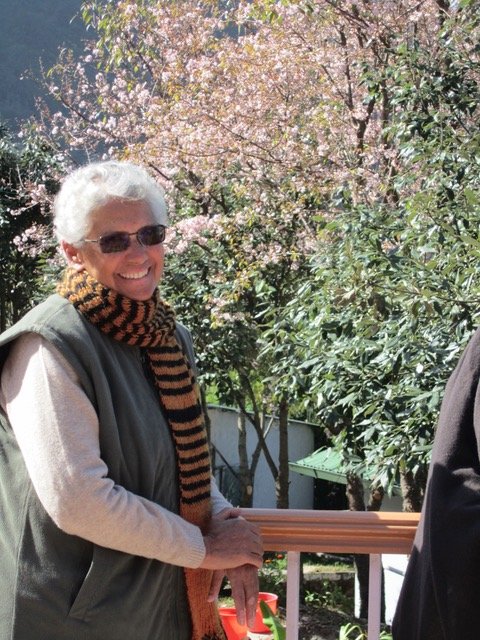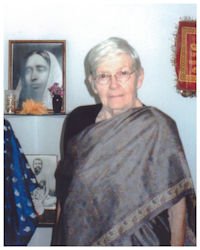Pioneer Women of Vedanta
Vedanta is the philosophy of the ancient spiritual wisdom of India and refers to universal values. Vedanta has produced many great saints and teachers whose lives embody these teachings, including Sri Sarada Devi, the Holy Mother (1853-1920) and Swami Vivekananda (1863-1902).
During her tour of the United States in August, 1996, Pravrajika Vivekaprana, a senior sannyasin of the Ramakrishna Sarada Math and Mission and the head of a Retreat Center at Pangot, India, stated:
Pravrajika Vivekaprana
We hear about women becoming great sages, or great discoverers in our Vedic literature. And in between you find that women in India as well as all over the earth, became an inferior race due to various reasons.... In the 19th Century, Sri Ramakrishna was born in India, who pointed to the feminine power behind this visible universe calling it the Mother and praying to it to become awakened. He worshipped his own wife (Sri Sarada Devi, the Holy Mother). He accepted a woman as his guru, giving tremendous reverence to the feminine form, which had vanished in India also, though we do have tremendous reverence for goddesses. But to the visible form of a woman, this respect was not given and he has reinitiated this in India.
As the interpreter of Sri Ramakrishna's life, Swami Vivekananda felt that the time has come when the woman everywhere on this earth has to stand up and accept a very difficult role, the role of a teacher-mother. Because it is the woman who brings up the next generation and it is because the woman thought herself inferior that the world is what it is today, a sad place. And it is the woman who needs to become aware of her inner compassion as well as inner level of greatness so that she can give it back to the child and so that society can improve. This was his grand idea.
Through the Pioneer Women of Vedanta project, Samiti members and friends interview women who have practiced Vedanta for 25 years or more. We feature some of them here as a tribute to their dedication to personal spiritual evolution and the welfare of all. Their lives are a source of inspiration for us.





